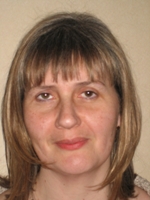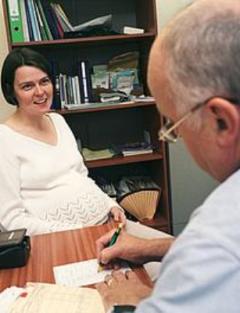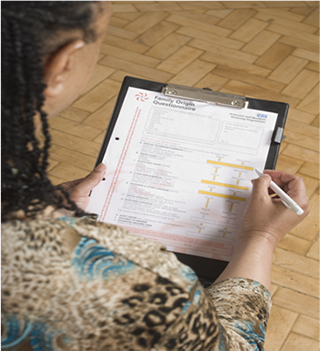Preconception Care course



This session will introduce you to the concepts of preconception care, including opportunities for preconception care to be undertaken, and provide you with scenarios to work through to hone your skills in this area.
Learning Objectives
By the end of this session you will be able to:
- List appropriate health promotion approaches that enhance preconception health
- Describe preconception care systems and processes
- Apply the principles of preconception care by reflecting on practice scenarios detailed in this session
Being aware of any risks will enable couples to make informed choices when planning their pregnancy with a view to reducing the risk of complications that may occur to mother and baby. This would lead to improved maternal health and fetal development, and result in a reduction in maternal and perinatal deaths.
Before commencing this session you should complete:
- Health Promotion/Basic Principles
- Screening/Screening Programmes Part 1: Pregnancy and Newborn
- Growth and Nutrition/Nutrition Before and During Pregnancy
Therese Chapman has practised as a nurse for over 35 years and has practised as a midwife for the last 21 years, working variously in rural, urban and inner city areas in the south of England. Her practice has included working in high-risk obstetric-led care, as well as in midwifery-led care.
She has enjoyed work as a Community Team Leader, Senior Midwife in a stand-alone birth unit, a Labour Ward Coordinator, a 1-2-1 Case Load Midwife, a Practice Development Midwife and latterly as Consultant Midwife for public health in East and Central London. She has a particular interest in working with vulnerable and socially excluded families and that, coupled with a passion for change management, has enabled her to lead in a variety of multi-agency service and practice initiatives.
Outside NHS practice, Therese has served as elected chair on the local Domestic Violence Forum, is an independent Domestic Abuse and Safeguarding trainer, and was health lecturer for Chichester School of Social Studies. Therese is currently employed by Imperial Healthcare NHS Trust as Consultant Midwife for Public Health, and is the Named Midwife for Safeguarding.


Philippa Cox has been a midwife in London for over 20 years in a variety of roles which have included Community Midwife, Debriefment Midwife, Clinical Risk Manager and Lecturer Practitioner at London South Bank University.
In September 2008, she took up her current post at Homerton University NHS Foundation Trust as Consultant Midwife. In this role she was closely involved in the Reducing Infant Mortality programme that ran for three years from September 2007. The programme consisted of several interventions aimed at improving outcomes for mothers and their babies. She has also led on several initiatives within the Trust to promote normal birth including a midwifery led birth centre and a group birth after caesarean session aimed at promoting women to have a vaginal birth after caesarean section.
Philippa is a Supervisor of Midwives and is currently a Midwifery assessor for MBRRACE –UK whose work includes the Confidential Enquiry into Maternal Deaths (CEMD).She holds an honorary lecturer contract with London’s City University.
- Anaesthesia Fundamentals | Physiology | Ventilatio...
- Posted By eIntegrity Healthcare e-Learning
- Posted Date: 2024-12-26
- Location:Online
- This session describes how and why ventilation and perfusion vary in the healthy lung. Causes of hypoxia, such as hypoventilation, increased dead space and shunt, are discussed to help the trainee explain and manage hypoxia clinically.
- Anaesthesia Fundamentals | Physiology | Pulmonary ...
- Posted By eIntegrity Healthcare e-Learning
- Posted Date: 2024-12-26
- Location:Online
- This session covers the measurement and clinical importance of lung volumes, including functional residual capacity and dead space. Information regarding the performance and interpretation of flow-volume loops is also included.
- Anaesthesia Fundamentals | Physiology | Co2 Carria...
- Posted By eIntegrity Healthcare e-Learning
- Posted Date: 2024-12-26
- Location:Online
- This session covers the physiology of how carbon dioxide is carried by blood, including its conversion into bicarbonate ions and the role of the red blood cell and haemoglobin in this process. The session also describes how buffers work, and the fundament
- Anaesthesia Fundamentals | Physiology | Function o...
- Posted By eIntegrity Healthcare e-Learning
- Posted Date: 2024-12-26
- Location:Online
- This session focusses on the function of haemoglobin in oxygen (O2) carriage from the lungs to other tissues where cells are supplied with the O2 required for oxidative phosphorylation in the mitochondria. We will cover the structure
- Anaesthesia Fundamentals | Physiology | Gaseous Ex...
- Posted By eIntegrity Healthcare e-Learning
- Posted Date: 2024-12-26
- Location:Online
- This session will introduce you to the physiological effects of altitude and the adaptations that occur with acclimatization. It also introduces the pathology and physiology of high pressure and decompression.








